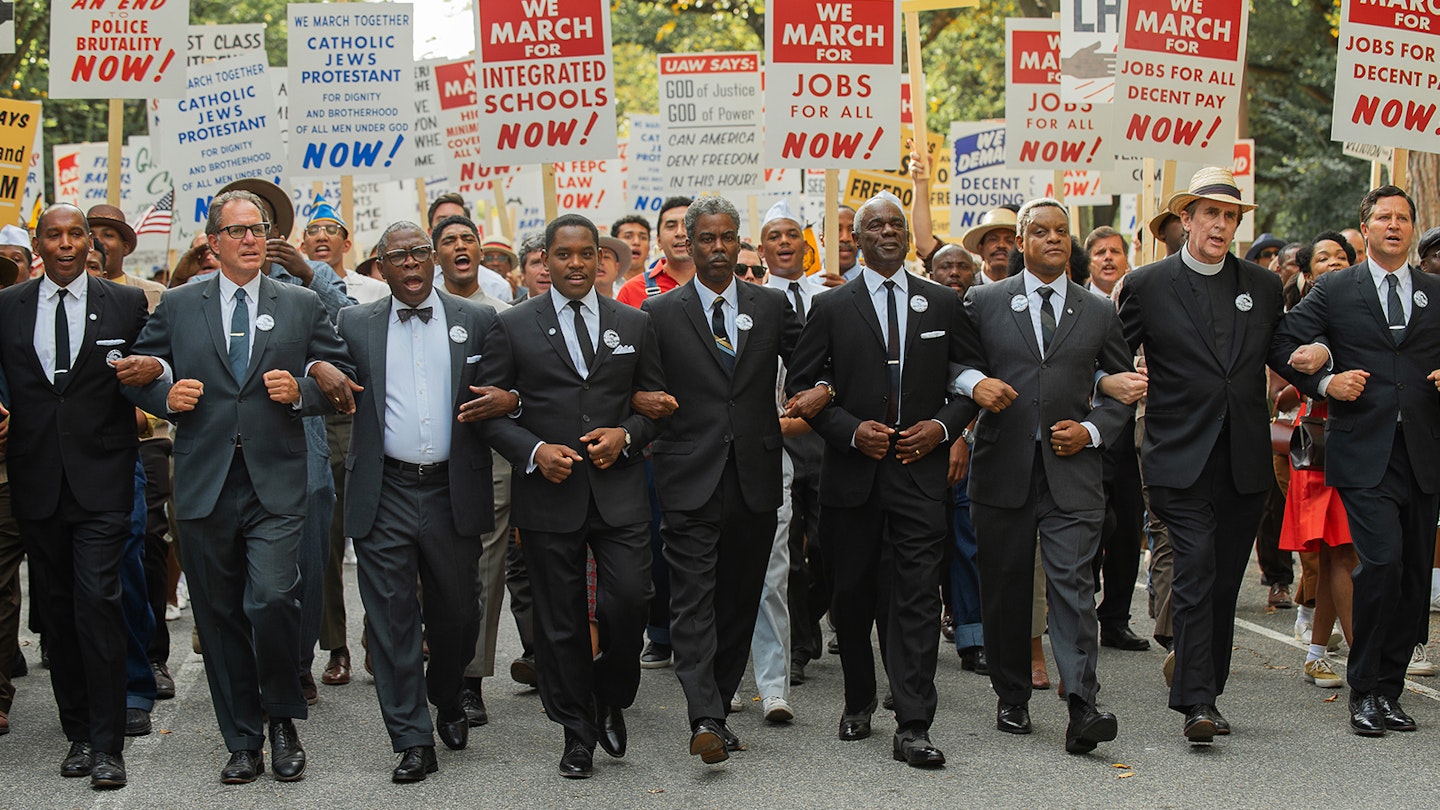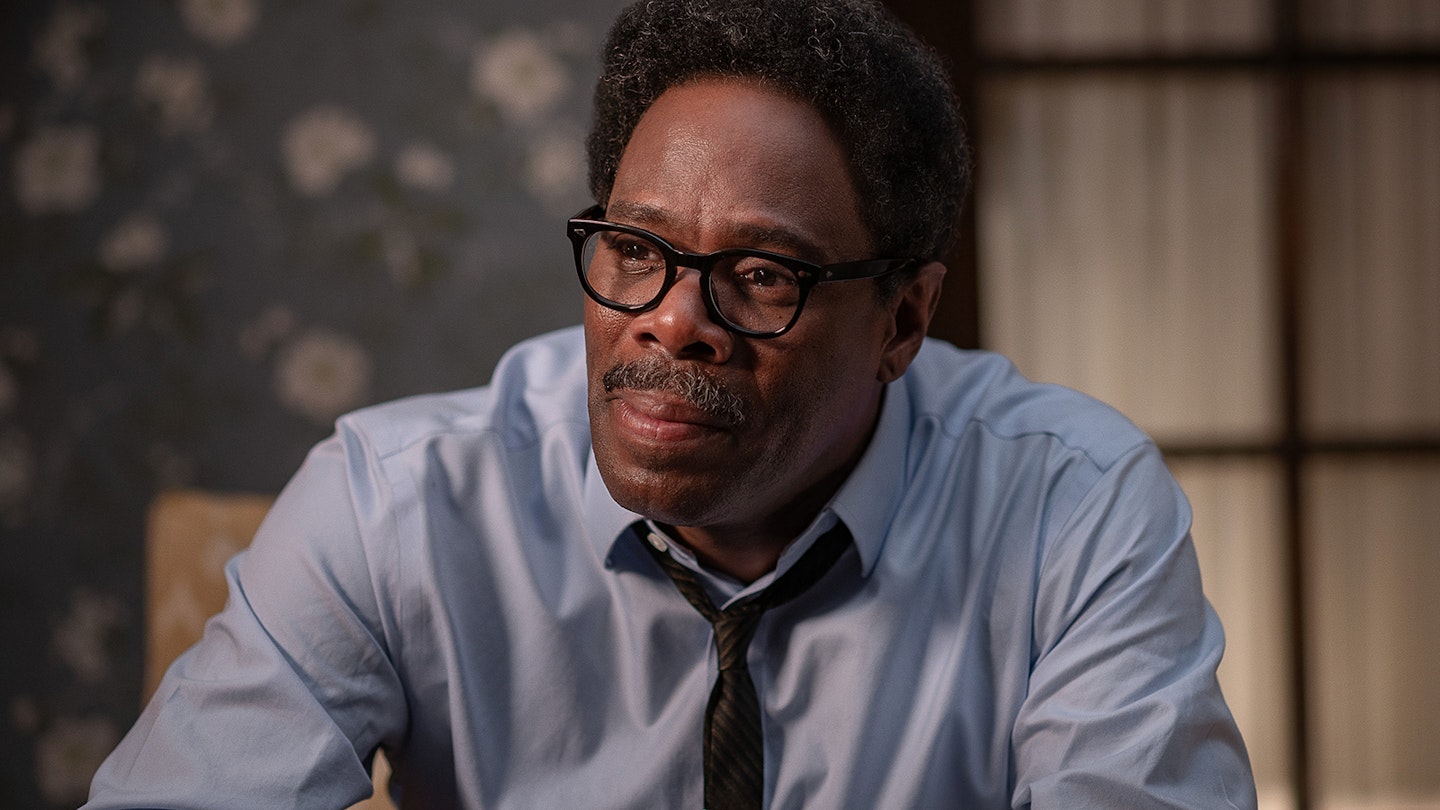As far as American civil rights icons go, Bayard Rustin does not quite enjoy the household-name status conferred upon the likes of Martin Luther King or John Lewis. Rustin, a new biopic from George C. Wolfe (Ma Rainey’s Black Bottom), looks to redress that somewhat, placing him squarely in the headlights of history. It will certainly bring his story back to popular attention, even if the way in which his story is told isn’t always especially original.
A prologue rattles through key events, giving us a quick mini-history of the civil rights movement in America: in the aftermath of the Supreme Court’s 1954 Brown vs Board of Education decision, which signalled the beginning of the end for segregation in the US, Bayard Rustin (Colman Domingo) finds himself in a power struggle with the NAACP, the country’s biggest civil rights group. He tenders his resignation, expecting his colleague and friend, Martin Luther King (Aml Ameen), to refuse it; to his shock, King accepts it, and Rustin is forced to leave the movement he helped to build.

The timeline then jumps ahead to 1963, practically a lifetime at that point in the 20th century: Kennedy is now in the White House, civil rights as a political force is fast gaining momentum, history is being made on a seemingly daily basis. Rustin now seems like a has-been; at a party, he’s told he is “irrelevant”. (“I’ve been called worse on a Friday,” he drily notes.) At a point when it seems he could fade away, inspiration strikes: a massive protest march on Washington DC, bringing together a coalition of civil rights groups, that could pressure Congress into passing the landmark Civil Rights Act.
What rescues the film from veering too far down the cliché hole is Colman Domingo, an actor of significant charm, grace and warmth.
So begins an energetic telling of how the biggest peaceful protest in American history came together in just eight weeks, through scrappy grassroots organising and the strength of Rustin’s relentless optimism and charisma. Wolfe films all with a liveliness and pace, and Branford Marsalis’ score lends a jazzy breeziness to proceedings.
There’s also some intriguing behind-the-scenes infighting, with NAACP executive secretary Roy Wilkins (Chris Rock, in rare dramatic mode) and Rep. Adam Clayton Powell Jr (Jeffrey Wright, charismatically douchey) acting as stubborn stonewalls against Rustin’s efforts. But — save for a worry that nobody will show up on the day — there’s a strange lack of tension as the film ramps up to its inevitable conclusion. The problem with an account of a well-known historic event is that most people already know the outcome; it ultimately plays out as if it was always going to go this way, cosily preordained.
What rescues the film from veering too far down the cliché hole is Colman Domingo, an actor of significant charm, grace and warmth. He’s long deserved a leading-man role worthy of his talents, and while this might not become the Oscar-winning turn it seems to be positioned as, he brings a rare humanity to Rustin, especially in the intersectional oppression he encounters as both a Black man and a gay man. When he talks about the “exalted rage” found in African-American Baptist churches, you feel that.
